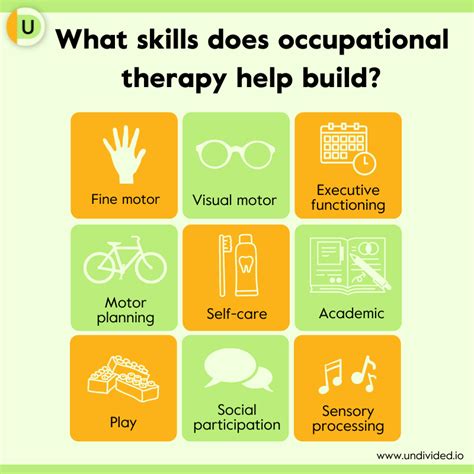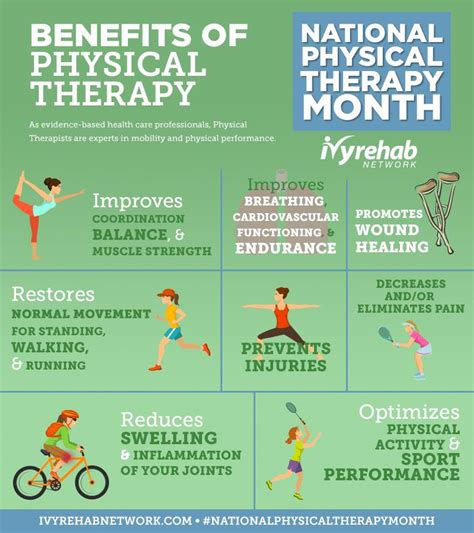Intro
Discover the vital role of occupational therapists in enabling individuals to overcome physical, emotional, and cognitive challenges. Learn how they assess, adapt, and empower patients to perform daily tasks, promoting independence and overall well-being. Explore the diverse settings and populations they serve, from pediatrics to gerontology, and rehabilitation to mental health.
Occupational therapy is a vital healthcare profession that helps individuals with physical, emotional, or cognitive disabilities to achieve independence and participate in daily activities. Occupational therapists play a crucial role in enabling people to live their lives to the fullest, despite the challenges they face. In this article, we will delve into the world of occupational therapy and explore what occupational therapists do.

Occupational therapists work with individuals of all ages, from children to older adults, to help them develop, recover, or maintain the skills needed for daily living and work. They use a holistic approach, considering the physical, emotional, and social aspects of an individual's life, to create personalized treatment plans. These plans may include exercises, activities, and strategies to improve mobility, strength, and coordination, as well as to enhance cognitive function and mental health.
Key Responsibilities of Occupational Therapists
Occupational therapists have a wide range of responsibilities, which may vary depending on the setting and population they work with. Some of the key responsibilities of occupational therapists include:
- Conducting assessments to identify an individual's strengths, weaknesses, and goals
- Developing and implementing personalized treatment plans to address specific needs and goals
- Providing therapy sessions, either one-on-one or in groups, to help individuals develop new skills or improve existing ones
- Collaborating with other healthcare professionals, such as physicians, physical therapists, and speech therapists, to ensure comprehensive care
- Educating individuals, families, and caregivers on strategies and techniques to promote independence and participation in daily activities
- Modifying environments to make them more accessible and user-friendly

Settings Where Occupational Therapists Work
Occupational therapists work in a variety of settings, including:
- Hospitals and rehabilitation centers
- Schools and early intervention programs
- Private practices and clinics
- Community mental health centers
- Nursing homes and assisted living facilities
- Home healthcare agencies
The Benefits of Occupational Therapy
Occupational therapy offers numerous benefits to individuals, families, and society as a whole. Some of the benefits of occupational therapy include:
- Improved independence and participation in daily activities
- Enhanced mobility and coordination
- Increased confidence and self-esteem
- Better management of chronic conditions, such as diabetes and arthritis
- Improved mental health and well-being
- Increased productivity and job satisfaction
- Reduced healthcare costs and hospitalization rates

Specializations in Occupational Therapy
Occupational therapists may specialize in specific areas, such as:
- Pediatrics: working with children and adolescents with developmental delays or disabilities
- Mental health: working with individuals with mental health conditions, such as anxiety and depression
- Rehabilitation: working with individuals who have experienced injury or illness, such as stroke or spinal cord injury
- Gerontology: working with older adults to promote healthy aging and independence
- Hand therapy: working with individuals with hand injuries or conditions, such as carpal tunnel syndrome
Education and Training for Occupational Therapists
To become an occupational therapist, one must earn a master's or doctoral degree in occupational therapy from an accredited program. Occupational therapy programs typically include coursework, fieldwork, and research projects. After graduating, occupational therapists must pass the National Board for Certification in Occupational Therapy (NBCOT) exam to become certified.

Salary and Job Outlook for Occupational Therapists
The salary and job outlook for occupational therapists are promising. According to the Bureau of Labor Statistics, the median annual salary for occupational therapists is around $84,000. The job outlook is also positive, with the Bureau of Labor Statistics predicting a 16% growth in employment opportunities for occupational therapists from 2020 to 2030.
Conclusion
Occupational therapists play a vital role in helping individuals with disabilities or challenges to achieve independence and participate in daily activities. With their expertise and compassion, occupational therapists make a significant difference in the lives of their clients. If you are considering a career in occupational therapy, we hope this article has provided you with a comprehensive understanding of what occupational therapists do and the rewards of this profession.

We invite you to share your thoughts and experiences with occupational therapy in the comments below. Have you or a loved one benefited from occupational therapy? What do you think are the most important qualities of an occupational therapist?
What is occupational therapy?
+Occupational therapy is a healthcare profession that helps individuals with physical, emotional, or cognitive disabilities to achieve independence and participate in daily activities.
What do occupational therapists do?
+Occupational therapists work with individuals to develop, recover, or maintain the skills needed for daily living and work. They use a holistic approach, considering physical, emotional, and social aspects of an individual's life.
What are the benefits of occupational therapy?
+The benefits of occupational therapy include improved independence, enhanced mobility and coordination, increased confidence and self-esteem, better management of chronic conditions, and improved mental health and well-being.
